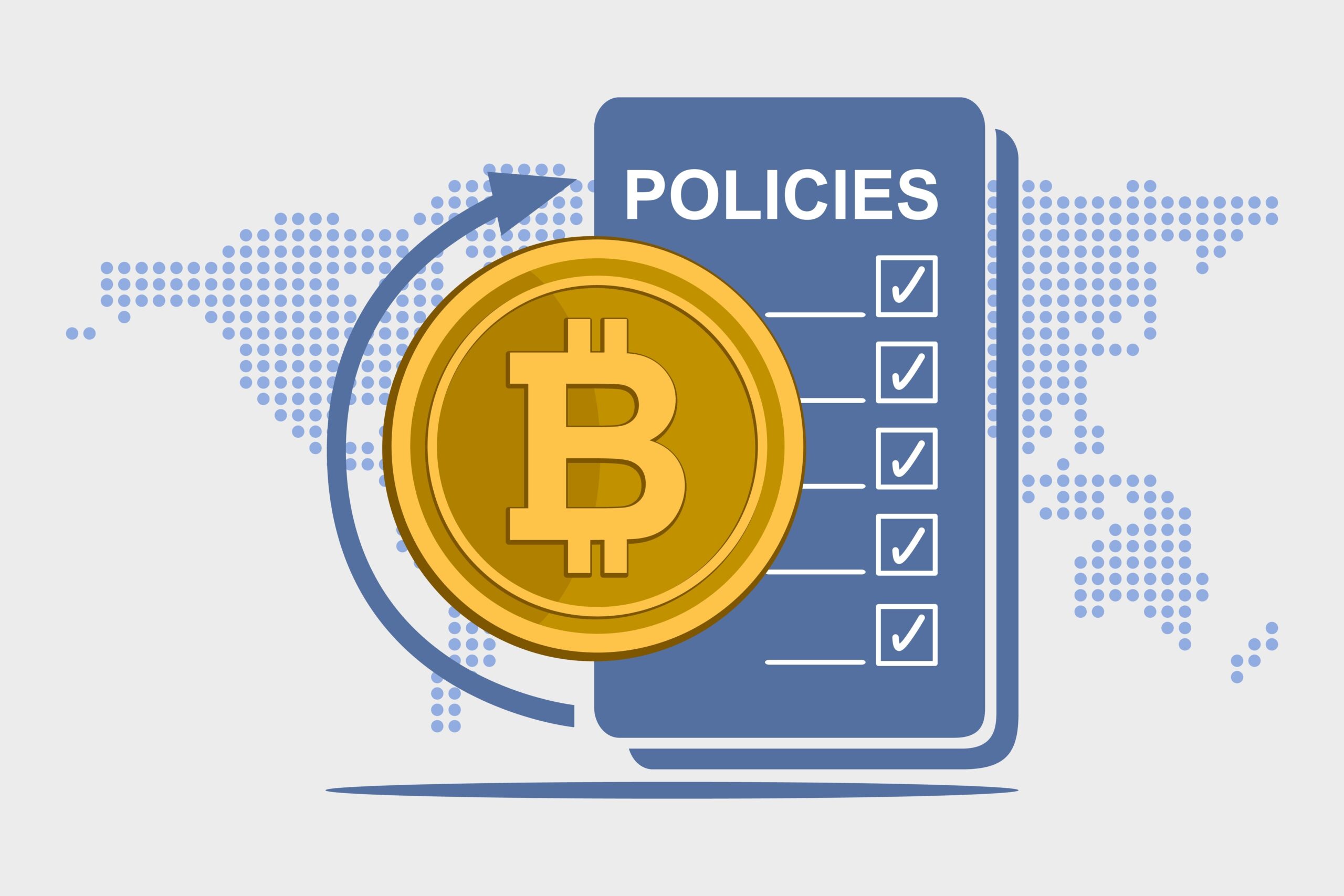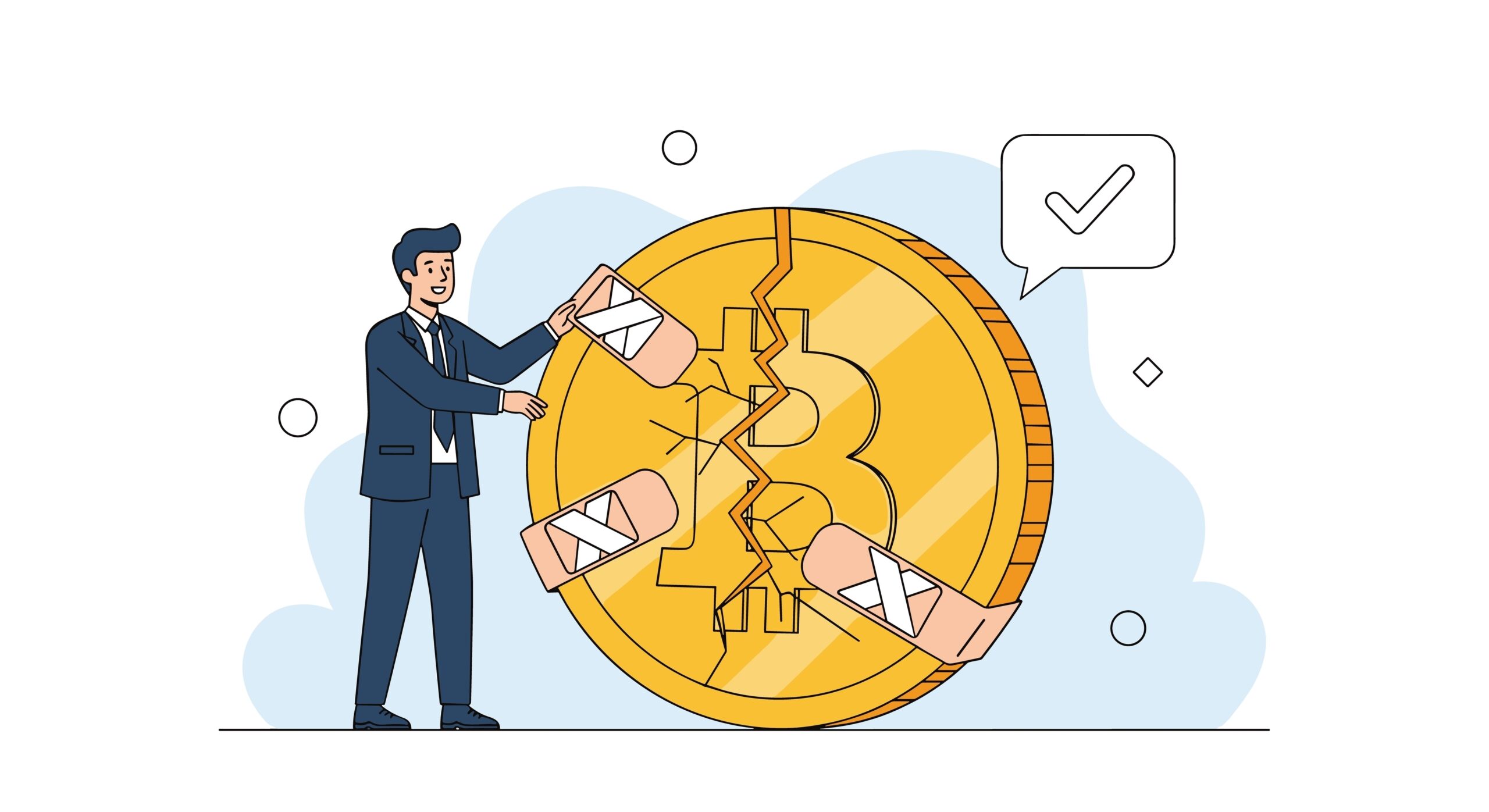The Impact of Crypto Regulations on Emerging Markets

Will new crypto laws unlock opportunity in developing countries—or just make things harder?
Picture this: you’re hustling to send money back home or trying to keep your business alive in a country where banks move at a snail’s pace, and suddenly, crypto swoops in with a promise of speed, reliability, and freedom from crazy fees—but just as you start to trust it, a government rule drops, flipping the whole system upside down overnight. That’s the reality for millions in emerging markets, where outdated laws and constant uncertainty turn every simple transaction into a gamble. It’s frustrating, right? People need real, dependable solutions that don’t vanish because of shifting policies. The good news: this chaos isn’t the end of the story. There are ways crypto can actually push through the challenges, offer real opportunities, and make life better for everyday people. Curious how things could finally work in their favor? Let’s take a closer look at what’s actually happening on the ground and what it could mean for the future.
The Challenges Facing Crypto in Emerging Markets

Crypto is supposed to bust down barriers and give folks more financial freedom, right? But in places like Nigeria, Argentina, or parts of South Asia, everyday users and even startups face a wall of problems:
- Financial exclusion — Millions still don’t have access to basic banking services.
- Unstable national currencies — Hyperinflation in places like Venezuela has destroyed savings overnight, sending people scrambling for something more reliable.
- Patchy infrastructure — Internet coverage and tech know-how aren’t consistent everywhere, making access tough for many.
- Unclear or missing regulations — With barely any clear laws, nobody’s really sure what’s allowed and what’s not, which creates a kind of Wild West feeling for everyone involved.
How Rules (or the Lack of Them) Are Holding Progress Back
Here’s where things get interesting. The lack of clear rules isn’t just a headache for big exchanges or developers—
- Startups have to guess what’s legal, slowing down innovation and growth.
- International investors hesitate, worried their money could get trapped by sudden bans or new taxes.
In India, for example, the government’s flip-flop approach—first banning banks from dealing with crypto in 2018, then reversing course two years later—left the whole industry in chaos. Even today, companies and users are nervous. According to a Brookings report, regulatory uncertainty is one of the biggest reasons why crypto has struggled to reach its true potential in South Asian markets.
Where It Hurts: Everyday Users and Businesses
This is where crypto goes from being all about code and charts to something deeply personal. In some African countries, when the government cracks down on crypto, suddenly:
- People who rely on it to send money home from abroad get stuck or pay much higher fees via old-school remittance firms.
- Small businesses, who just started accepting payments in stablecoins to beat inflation, are forced back into struggling local currencies.
On the upside, when governments are open to crypto or at least allow it to operate in a gray area, you see huge upticks in adoption. According to the 2023 Chainalysis Global Crypto Adoption Index, Vietnam and Nigeria top the charts in adoption—often because people are looking for ways to escape out-of-control inflation and banking fees.
So, is crypto the answer to financial problems in emerging markets—or just another source of confusion and risk when laws keep changing? That’s what makes the story so fascinating. But if you think crypto is just hype, what comes next might just change your mind. Want to see how crypto is actually solving real-world problems where it matters most? Stick around for the next part where we get into the gritty details.
The Role of Cryptocurrency in Emerging Markets

Cryptocurrency is so much more than a tech buzzword in places where the financial system just… doesn’t work for everyone. For a huge chunk of the world’s population, especially in countries where the local currency is always on the edge of collapse, crypto isn’t just cool—sometimes it’s survival.
Solving Real-World Problems: From Exclusion to Inflation
Here’s a reality check: over 1.4 billion adults globally don’t even have a bank account (World Bank Global Findex). That means no savings, no easy way to get paid, and no access to basic financial tools. That’s where crypto steps in.
- Financial Inclusion: Cryptocurrencies like Bitcoin and stablecoins are breaking down barriers. In Nigeria, for example, people use USDT (a digital dollar stablecoin) daily because their banks can’t guarantee the value of the local naira from one week to the next.
- Lower Remittance Fees: Sending money home used to mean losing a chunk to middlemen. Now, with coins like Stellar (XLM) or even just Bitcoin Lightning, families in the Philippines or El Salvador get more of every dollar—and it arrives in minutes, not days.
- Shield Against Inflation: I’ve heard stories from readers in Argentina who bought crypto just to protect their savings from getting eaten alive by hyperinflation. With annual inflation at times above 100%, grabbing even volatile crypto can feel like the safer move.
“For us, Bitcoin is hope.” — Jack Mallers, speaking about the impact of Bitcoin in El Salvador
Crypto Fuels Innovation and Growth
Can you imagine starting a business in a country where it’s tough to open a bank account, let alone get a loan? Crypto is flipping this script.
- Entrepreneurs Thrive: From Kigali to Karachi, startups are raising money through crypto crowdfunding when banks wouldn’t touch them. Platforms like Paxful and Binance P2P have opened up a whole new world where anyone can join the digital economy, not just people with friends in high places.
- New Payment Options: Merchants in Venezuela now proudly display “Bitcoin Accepted Here” signs. With payment processors like BitPay, even tiny shops can do business with a global customer base—no more being trapped by a broken banking system.
- Empowering Developers: I’ve seen communities come together around blockchain projects—building everything from savings groups to micro-insurance, all powered by crypto.
The energy, the new ideas, the way crypto changes lives—this is exactly why so many people in these regions fight for fair crypto policies. Studies back this up: according to Chainalysis’ Global Crypto Adoption Index, peer-to-peer crypto usage in Nigeria, Vietnam, and Kenya outranks many wealthier countries.
But when rules are up in the air, innovation can stall and ordinary people are left in limbo. What’s the real risk when governments crack down—or don’t regulate at all? Stick around, because in the next part I’ll unpack just how much these rules (or their absence) matter when it comes to trust, safety, and the future of money.
Why Crypto Regulation is So Important

Let’s be real—rules can make or break crypto in emerging markets. I’ve seen both wild growth and total chaos, all because of how governments set the boundaries. So, why does regulation matter so much when it comes to everyday folks, investors, and tech builders?
Keeping Out the Bad Guys
Crypto’s potential is huge, but so are the risks. Without solid ground rules, “get rich quick” scams, phishing sites, and outright fraud are everywhere. For example, remember the OneCoin disaster? Billions vanished because scammers exploited regulatory loopholes in several countries across Africa and Asia. Proper regulations aren’t just red tape—they’re a safety net.
- Scams and fraud: Fake coins and Ponzi schemes prey on people with little protection.
- Money laundering: Unchecked, crypto can become a tool for hiding stolen money, and that spooks everyone from businesses to banks.
“Sunlight is the best disinfectant.”—U.S. Supreme Court Justice Louis Brandeis
Clear rules work like sunlight—they keep things transparent and honest.
Inspiring Investor Confidence
No one pours their savings into something that feels like the Wild West. When countries roll out fair, clear guidelines, it sparks a domino effect. Suddenly, both everyday savers and big institutional investors pay attention.
- Ghana’s move to recognize crypto exchanges brought in record foreign fintech investment, according to a 2023 report from the African Development Bank.
- On the flip side, when the Central Bank of Nigeria briefly banned banks from dealing in crypto, usage didn’t stop—it just went underground, making things riskier for everyone.
Trust is everything. It fuels not just trading, but real, lasting innovation.
Balancing Innovation with Risk
This is the toughest part. “Set too many rules and you smother the next big idea. Set too few and you get a mess.” Most governments want to encourage startups and let financial technology evolve, but nobody wants to see their citizens’ savings wiped out overnight.
- Singapore struck a smart balance: tight rules for exchanges (especially around identity checks and security) but wide room for innovation with new blockchain services.
- Meanwhile, Venezuela’s ultra-strict approach blocked many legit companies from growing, leading to a wave of underground, unsafe trading.
It reminds me of walking a tightrope—every rule can be the safety net or the thing that pushes someone off.
So, what actually happens when governments put their foot down—or offer a helping hand? Does regulation always mean users get protected and innovation flourishes? Or can it slam the brakes on everything?
Keep reading—you’ll see real-world results, both good and bad, and why the next step for crypto in emerging markets seriously matters. Ready for the next piece?
What Happens When Crypto Gets Regulated?

Picture this: crypto in emerging markets is like a wild river—full of energy and unpredictable currents. Regulation acts as the dam and the channel. The big question is: when governments finally step in, do they guide the flow to light up entire cities, or just build walls that leave everyone in the dark?
Pros: Stability, Protection, and Growth
Let’s start with the bright side. Well-crafted crypto regulations in emerging markets can be a game-changer—just look at Nigeria. Despite some government skepticism, clear frameworks there helped turn Nigeria into one of the world’s fastest-growing crypto adoption hotspots. When people know the rules, confidence goes up. That means safer exchanges, less risk of scams, and a playground for real innovators (not just speculators).
- Stability: Well-defined rules help weed out rug pulls and Ponzi schemes, building trust—think about how Brazil’s 2022 crypto law resulted in more honest trading, with licensed companies stepping up and fakes backing off.
- Protection: User safeguards become possible (like insurance for account hacks, or better dispute resolution). In South Africa, regulators proposed clear guidelines, finally giving regular people some recourse if things go wrong.
- Growth: Big investors are no longer scared. The World Bank studied Kenya’s regulatory steps, showing how supportive rules kickstarted new jobs and fintech projects.
As the saying goes:
“Regulation is not a roadblock, it’s a guardrail—sometimes keeping dreams alive.”
Cons: Hurdles for Users and Businesses
But let’s be honest, it’s never all sunshine. Over-the-top restrictions can slam the brakes on progress. In India, for example, when the central bank banned crypto banking in 2018, overnight millions of small investors and entrepreneurs were left stranded, struggling to recover until the Supreme Court reversed the ban in 2020. For a while, crypto innovation flatlined and user volumes dropped like a stone.
- Locked Out: Extreme compliance costs can keep ordinary people and small startups from joining in, especially those without high budgets or legal teams.
- Less Access: When KYC (know-your-customer) rules are too complicated, the most vulnerable users—think rural families or migrant workers—get trapped outside the system they need most.
- Innovation Freeze: Red tape has a chilling effect. One report by the IMF showed that patches of unclear and hefty restrictions in Southeast Asia led to a “brain drain” of crypto startups relocating to friendlier countries.
Here’s the emotional side—regulations have real consequences on people’s ability to send money to family, save against inflation, and run businesses. Getting locked out isn’t just a technical glitch; it hurts dreams, plans, and sometimes survival itself.
So, if regulation is such a double-edged sword, how can countries actually get it right? What headaches do regulators themselves face behind the scenes? Let’s check out the hidden hurdles in the next section—you might be surprised by what they’re up against…
Challenges Regulators Face in the Crypto World

Regulating crypto isn’t just complicated—it’s a brain-buster. If it was as easy as scribbling down some rules and calling it a day, everything would be running smoothly. But the reality looks very different on the ground in emerging markets.
Defining What Crypto Even Is
You’d think identifying what crypto is would be step one, right? Not even close. One regulator says crypto is money; another calls it property; somewhere else, it’s a security. This confusion isn’t just academic—it’s got real-world effects. Imagine you run a crypto startup in Nigeria or Brazil, and you’re not even sure which laws apply to you. That’s a scary way to build a business.
Take the example of India: for years, crypto lived in a gray zone, neither illegal nor completely accepted. It changed how people invested but kept businesses in limbo, unable to plan months—let alone years—ahead. Regulators struggling to pin down definitions aren’t just fighting paperwork; they’re holding back progress.
Fighting Financial Crime
Money laundering and funding criminal activities are legit concerns. Last year, over $23 billion in crypto was linked to suspicious financial activities globally (Chainalysis, 2023). But the tough part for regulators is tackling these issues without crushing the people who use crypto for honest reasons.
- How do you crack down on shady actors while making sure a gig worker in the Philippines can still send money home easily?
- Is it possible to impose strong checks without making daily transactions a nightmare for everyone else?
Too much oversight drives users underground. Too little, and you risk your market becoming a target for international crime. It’s a balancing act nobody’s mastered yet.
Privacy, Security, and Tax Headaches
Let’s talk privacy and security. People don’t want their personal data up for grabs—and with hack after hack making headlines (just look at the Ronin Bridge hack, with over $600 million stolen last year), regulators are sweating over how to secure users while keeping everything above board. As one African entrepreneur told Quartz:
“People want freedom, but they also want safety. Crypto feels risky when the rules are fuzzy.”
Taxation just adds another layer of mess:
- Should crypto gains be taxed as income or capital gains?
- How do you even track and report transactions on a decentralized network?
Emerging market tax offices aren’t exactly known for having cutting-edge tech, which makes enforcing these rules about as easy as catching smoke with your hands.
This is why regulating crypto is such a massive puzzle. So what does this look like in real life, when the rubber hits the road? Some countries have come up with creative solutions—others, not so much. Curious to see who’s leading the way, and who’s taken the wrong turn? Keep reading to check out some real-world case studies—trust me, you don’t want to miss what happens next.
A Look at Different Approaches: Case Studies

Without a doubt, some countries in the emerging world are basically rewriting the rulebook on crypto—and getting really different results. It’s almost like watching a high-stakes experiment unfold in real time. Let’s see what’s actually working out there…and what really isn’t.
Countries Leading the Way
There’s a quote from Andreessen Horowitz that sticks with me:
“Where you see openness to innovation, you see prosperity follow.”
You can really feel this in places like:
- El Salvador: When El Salvador went all-in by making Bitcoin legal tender, the world held its breath. It was a radical gamble—even controversial—but it’s shown some eye-opening results. According to data from the Central Reserve Bank, around 1.3 million Salvadorans (out of a total population of 6.3 million) tried cryptocurrency wallets in the first year alone. Small businesses in tourist towns started accepting crypto payments, and remittance costs have dropped for some families relying on money sent from abroad.
- Nigeria: Despite early regulatory uncertainty, Nigeria has quietly become Africa’s crypto powerhouse. P2P (peer-to-peer) trades exploded as locals use stablecoins like USDT to protect against wild currency swings. Chainalysis ranked Nigeria among the top countries for crypto adoption in 2023—and there are even Nigerian fintech startups using blockchain to make cross-border payments way cheaper and faster than old-school banks.
- Philippines: The government didn’t just allow crypto—they worked with exchanges and wallets to set up a regulatory ‘sandbox.’ The result? The Philippines is a leader in blockchain remittances, and thousands of people earn income through crypto-based games and freelance gigs. This proactive approach built a layer of trust, which drew in investment and cut scamming rates.
Markets Where Regulation Backfired
But let’s not sugarcoat it—some places tried to fight crypto with tough laws and bans, and it really made things messier:
- India (early years): A shadow of uncertainty hung over Indian crypto for years as regulators flip-flopped between full bans and hesitant acceptance. Startups fled overseas. Banking restrictions blocked ordinary people from accessing their funds. An Indian Supreme Court decision in 2020 finally unblocked some access—but the period of confusion saw business closures and a lack of mainstream trust.
- Turkey: When the Turkish central bank banned crypto payments in 2021, it aimed to “protect citizens”—but everyday folks had flocked to Bitcoin to survive inflation. Demand didn’t disappear. Instead, it drove users deeper underground, turning to unregulated channels and risking scams and poor security.
- Morocco: Strict regulations have kept Moroccan crypto users below the radar. A reported 3% of the population still buys crypto through P2P markets, despite the threat of fines. As a result, the country misses out on innovation—and guess what? Crypto adoption keeps growing, just with more risk attached.
There’s something fascinating here: when countries try to totally block crypto, it rarely disappears. People find new ways. But when the rules are clear and accessible, both businesses and everyday users stand a better chance of getting what they need—security, opportunity, and a voice in the future of finance.
But is there one perfect regulatory recipe? Is the answer putting up fences, opening the gates, or building something in between? I’ll show you just how complicated (and fragmented) the global crypto rulebook really is next, so stick around. Trust me: the most surprising part is coming up…
The Fragmented Reality: No One-Size-Fits-All

Ever wondered why crypto adoption feels like a game of chance in some places and a locked door in others? It’s because regulation isn’t just scattered—it’s all over the map. A brand new study from Cambridge spells it out: emerging markets lag behind partly because no two countries play by the same rulebook. Chaos? Opportunity? Maybe a mix of both.
Why Fragmented Rules Slow Progress
I see this every day talking to startups and everyday users—one country’s “approved” token becomes another’s “banned” asset. Here’s the thing: when regulations flip-flop from region to region, here’s what actually happens on the ground:
- Innovators jump ship to friendlier territories, which means the local economy misses out on jobs and fresh ideas.
- Businesses struggle to offer seamless services across borders. Imagine sending money to your family next-door, only to run into a wall of red tape or sudden app restrictions.
- Some users get stuck with high fees, limited access, or the ever-present risk of new crackdowns wiping out services overnight.
Just look at what’s happened in Latin America: Brazil has welcomed crypto with clear, encouraging rules—while neighbors like Argentina keep shifting gears, causing whole projects to move elsewhere. So much wasted potential, just because the rules don’t match up.
What Science Says About Regulation and Adoption
The science backs up what users already feel. One research article published on ScienceDirect found that people trust cryptocurrency more when the rules are clear and predictable. But uncertainty kills that trust—and adoption slumps as a result.
“The presence of fragmented, inconsistent regulations directly correlates with stagnant crypto adoption and limited innovation.”
So yes, regulation really can make or break crypto’s future in these markets. But here’s a twist: it’s not just about writing rules, it’s about making them clear and consistent. Without that, even the most promising blockchain projects are stuck spinning their wheels.
What if there was a smarter way—one that borrows the best ideas from both trailblazers and the folks who’ve tripped up? Imagine a world where rules empower users instead of blocking them. How could that actually work? Stick around—there’s a ton to learn from the real winners and cautionary tales, and you won’t want to miss what’s coming up next.
Balancing Act: What’s the Best Path Forward?

Okay, so we’ve seen just how wild and messy the crypto regulations scene is in emerging markets. But what actually works, and how do we make progress for everyone? Let’s get straight to what’s needed right now—and who should be at the table.
What Regulators Can Learn from Winners AND Losers
There’s no magic formula that works everywhere. I’ve been tracking this sector for years, and if there’s one thing I’ve learned—copy-paste policies just cause headaches. Take a look at places like Nigeria and El Salvador. Nigeria tried fierce restrictions; guess what happened? Users found their way around, and scammers thrived. On the flip side, El Salvador went all in and made Bitcoin legal tender. It got headlines and some crypto tourism, but everyday folks were left a bit confused with little education or practical support.
The smart move? Borrow what works—but fit it to local realities. According to a new Cambridge study, countries that blended local needs and global standards came out ahead. It’s not just about writing more rules—it’s about understanding what actual people need.
- Spot what’s been effective for reducing fraud.
- Mix in flexible approaches that work with existing financial systems, not against them.
- Give room for innovation but keep a close eye on where things go sideways.
This isn’t theoretical—there’s real research backing it up. As shown in this ScienceDirect study, clear and stable regulation can massively boost trust and adoption… but only if it’s straightforward and involves the community it’s supposed to protect.
The Voices That Need to Be Heard
If we’re aiming for progress, it can’t be regulators in a room on their own. And it’s definitely not just about flashy startups or big exchanges. The people who actually use crypto—developers building tools, business owners getting paid, and even the grandma sending money home—all have skin in the game.
- Regulators: Yes, they make the rules, but without listening, the rules don’t stick.
- Businesses and Entrepreneurs: They’ve seen what works, and what roadblocks keep them up at night.
- Developers: They create the platforms and features that shape user experience.
- Everyday Users: Their lives are most affected. What do they actually need? What confuses or frustrates them?
In some of the most exciting markets, we’ve seen government-hosted “crypto roundtables” where everyone’s invited (sometimes even virtually through open feedback forms). These events aren’t perfect, but they’re a start. Countries that follow this “everyone in” strategy usually end up with smarter, fairer rules—and much less chaos down the road.
But here’s the real kicker: are the right voices being heard in your country? Are policymakers learning from past wins and missteps, or just repeating history? If you’re itching for an answer—and want a sneak peek at what the future could hold—you definitely won’t want to miss the next part. Stay with me, because what happens next could shape how crypto transforms millions of lives. Ready to see what’s coming?
What’s Next for Crypto in Emerging Markets?

Alright, let’s get right to the big question—what does the future hold for crypto as more emerging markets try to figure out the whole regulation thing? It’s anyone’s guess, but if you watch the headlines as closely as I do, there are some trends and lessons that really stand out.
The Future of Regulation
We’re already starting to see countries looking over each other’s shoulders and learning from both the wins and the stumbles. Nigeria, for example, u-turned from a strict ban to launching their own digital currency and talking with market players—they’re tweaking things as they go. In South America, Argentina’s new government has started opening up talks about clearer crypto tax rules, catching the attention of everyone from street traders to fintech powerhouses. This shows us that the regulatory landscape isn’t stuck—there’s a real chance for smarter, more balanced approaches worldwide.
There’s growing evidence that when rules are clear and don’t change every other week, people feel safer getting involved. A great stat from ScienceDirect: emerging markets with transparent, fair crypto laws saw adoption rates spike by over 30%. That means more people saving, sending, and building with crypto—even in places where traditional banking fails them.
How to Keep Up and Stay Safe
Here’s the hard truth: regulations shift, sometimes fast. One day your favorite crypto app is available, the next—poof—it’s geo-blocked or suddenly needs ID checks. To roll with the punches:
- Follow trusted news: Sites like Cryptolinks News keep tabs on global changes. It pays to check regularly—even just skimming headlines.
- Know your local rules: Laws and guidelines can change overnight. What flies in Kenya or Brazil might be banned in India tomorrow, or vice versa.
- Watch for scams: Whenever new regulations hit, scammers love to take advantage of the confusion. Stick to reputable exchanges and wallets, and beware of “too good to be true” deals that pop up on social media or WhatsApp groups.
- Double-check before investing: If you’re looking to put some cash into a project, make sure it respects both local and international standards for security and compliance.
The more you know, the better you’ll move in this wild west meets Silicon Valley world. Don’t sleep on updates—legit changes in crypto law can come overnight.
Final Thought: Friend or Foe?
There’s no question that crypto can be an absolute game-changer for countries facing economic chaos, banking headaches, or surging inflation. But, the tricky part is the rules—they can either unlock that game-changing power or slam the door in your face.
To me, the future looks bright if regulators get on the same page and make rules that protect users and encourage fresh ideas. Whether crypto becomes a true friend—or a frustrating foe—in emerging markets depends on everyone: lawmakers, entrepreneurs, everyday users, and yeah, even those of us watching from the sidelines.
Keep your eyes peeled, stay curious, and bookmark Cryptolinks.com/news for the latest updates. The next big shift could be just one headline away.
